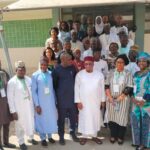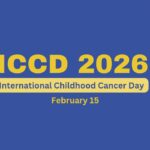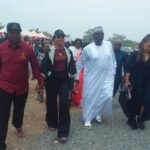By Hamza Suleiman
Internally Displaced Persons (IDPs) in Maiduguri have lauded the United Nations Population Fund (UNFPA) for providing humanitarian services for the vulnerable population in Borno.
The IDPs made the commendation during an assessment tour by a team from the UNFPA headquarters in Abuja to the Muna Elbadawy camp in Maiduguri.
Zainab Modu, 38-year-old IDP from Mafa Local Government Area, commended the fund for providing comprehensive healthcare and rehabilitation to survivors of Gender-Based Violence (GBV), and supporting young girls through empowerment and skill acquisition training.
Modu acknowledged that the fund had provided dignity kits and psychosocial counselling services, as well as skills training to them at the “safe space’’ established by the UNFPA.
The News Agency of Nigeria (NAN) reports that the “safe space” is a complete setting funded by donors, namely Norway, Canada, Denmark and the Korea International Cooperation Agency (KOICA), through the UNFPA to ensure the safety and protection of women and adolescent girls.
The “safe space” serves as meeting point for women and girls to freely express themselves and share their grievances, with skills acquisition section where hands-on skills are taught such as pomade and traditional cap making, while ante natal and family planning services are also given to the women.
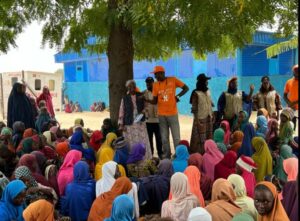 Another IDP, Salamatu Haruna, also told NAN that she lost her father while trying to escape from Boko Haram attack in Mafa before they came to the camp with her mother and siblings.
Another IDP, Salamatu Haruna, also told NAN that she lost her father while trying to escape from Boko Haram attack in Mafa before they came to the camp with her mother and siblings.
Haruna said she was rehabilitated in the safe space and empowered with a tailoring machine which has become her major source of income.
Yangana Babagana, another IDP, said she was comfortably delivered of her baby at the camp as she embraced the antenatal and psychosocial support services provided by the fund at the camp.
Similarly, Yachellu Ari-Kime, a 45 year old mother of eight, said that the fund provided a platform that ensures women and girls in all their diversity are empowered to exercise their sexual and reproductive health and rights and make autonomous decisions about their bodies free from coercion, violence and discrimination.
Ari-Kime said that in the past, some families give out their daughters in marriage at the age of 12 years old, which in most cases, resulted in complications during childbirth and maternal mortality.
“But through the education programmes and sensitisation provided by the UNFPA, women are now avoiding early marriages and now have better understanding toward their health and hygiene.
“And this has improved access to maternity care, prevention and treatment of childbirth complications, including how to avoid obstetric fistula,” she said.
She acknowledged that the fund had also trained her in liquid soap making, detergent and pomade production, among others.
On her part, 24-year-old Fauziya Muhammed, another IDP from Marte Local Government Area, said she lost her son and husband to the insurgency and was able to escape from dangers and ended up at the Muna Elbadawy camp in Maiduguri since 2017.
She added that she was taught how to help curb Sexual Gender-Based Violence (SGBV) and
had been receiving humanitarian and psychosocial support from UNFPA since she settled in the camp.
She said “women and girls are mentored not only on issues surrounding them, but they are taught to know when there is GBV, which can happen outside and in their homes by strangers or even family members.”
According to her, the GBV reporting mechanism has helped women to seek redress whenever their rights are violated, narrating the case of a Civilian Joint Task Force member who attempted to rape an IDP and was severely reprimanded.
Anthony Juguna, the UNFPA GBV Programme Specialist, said that the reproductive healthcare programmes for women, and the campaigns against GBV were supported and co-funded by partners like the Danish Government, through its Ministry of Foreign Affairs.
Juguna said that through the support from the USAID’s Bureau for Humanitarian Assistance (BHA), the Fund provides life-saving humanitarian assistance, including food, water, shelter, emergency healthcare, sanitation and hygiene, and critical nutrition services to vulnerable communities.
He explained that the Norwegian Government supported UNFPA to scale up Sexual and Reproductive Health (SRH) services, including SGBV prevention and response.
According to him, the UNFPA and the Korea International Cooperation Agency (KOICA), in collaboration with Borno Government, particularly the Borno ministries of health, women affairs, as well as budget and planning, have since 2018, been providing humanitarian assistance to displaced women, girls and vulnerable people.
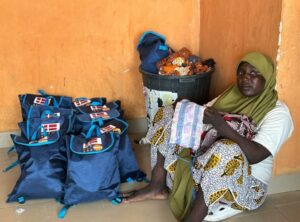
He said the collaboration assisted in increasing access to comprehensive maternal and child healthcare and fistula care.
On her part, Hajiya Kori Habib, the Media Associate of the UNFPA in Nigeria, said that the visit to the camp was to access some of the support being provided by the donors, as well as interact with the beneficiaries.
Habib said that the safe space was designed to help women and girls interact on issues affecting them.
She explained that the women were taught some skills in the area of making hand-woven caps, perfumes and soap local superghetti, tailoring and other skills.
“Some have already gotten the skills even as they come here so they share the knowledge among themselves but also make ends meet through the acquired skills.
“We have those who monitor and counsel them where we have people advocating against Gender Based Violence, prevention, referral mechanisms, as well as case management. All these things are done so that they can get that protection, discussing and seeking for support.
“Some of the women find it difficult when they come here to discuss issues affecting them, so, there are those who go out to the communities to sensitise them on how to take care of their bodies. They also have a section to direct them for legal service when rape cases occur.
“In the ante natal section, the women are provided family planning services, while in the aspect of GBV, they get helping aids like the whistle to raise alarm whenever they find themselves in any form of trouble.” (NAN)
Edited by Hadiza Mohammed-Aliyu


